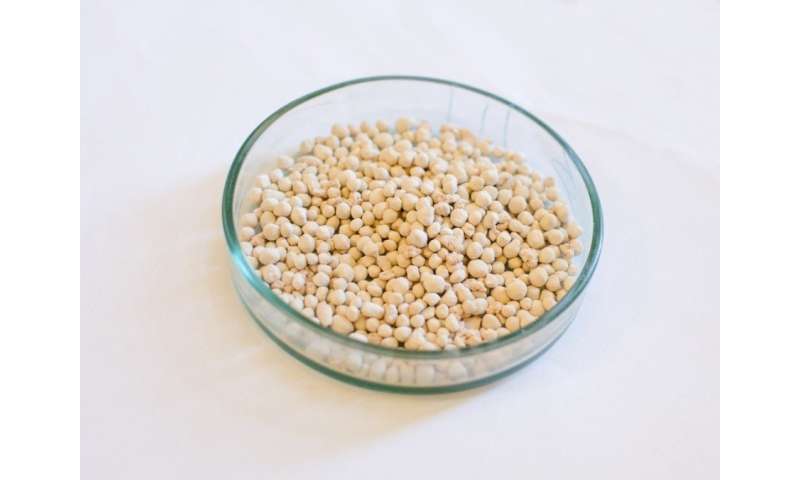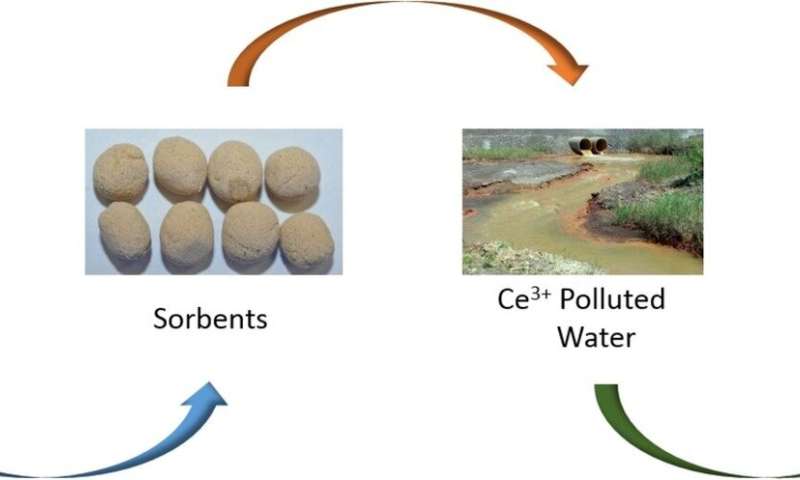Russian Scientists Suggest Cleaning the Land and Reservoirs in Industrial Regions with a Unique Sorbent

Ecology and materials science are the main areas that are studied at South Ural State University. So, the scientists of the Polytechnic Institute managed to create a unique sorbent for cleaning the environment in industrial regions. This sorbent made of metallurgical waste removes contaminants from the earth and water. An article on the development of new environmental material was published in the "Journal of Cleaner Production", one of the most ranked magazines of the first quartile.
Slag dumps are a source of pollution
The problem of environmental pollution in industrial regions of Russia is very acute. Our region also belongs to such territories. Here the enterprises of the metallurgical industry are located, they are the main pollutants. An additional environmental burden on the environment in the region is created by slag dumps, that is, waste from the production of ferrous and non-ferrous metals. For example, in the city of Karabash, the volume of such dumps is 16 million tons. Processing such dumps are very expensive, and existing technologies cannot limit the area of distribution of hazardous pollutants. They penetrate the soil and water, pass into water-soluble compounds, and migrate over long distances.
New environmental technologies and materials are needed to reduce pollution. Scientists at the Department of Materials Science and Physical Chemistry of Materials of Polytechnic Institute, South Ural State University synthesized unique composite sorbents that absorb heavy metals and transform them into insoluble materials. It is important that such products are absolutely safe for the environment.
"When using new sorbents, there is no need to use industrial facilities and chemicals, moving significant masses of materials. Cleaning takes place directly at contaminated sites without subsequent disposal of materials. An additional advantage of the developed technology is the use of metallurgical waste as raw materials, which also leads to a decrease in contaminated territories," Tatyana Lonsinger, head of the laboratory at the Department of Materials Science and Physical Chemistry of Materials said.
There are no such sorbents now in either the Russian or foreign markets. All known similar materials have lower service characteristics, higher cost and they cannot be used to clean territories without additional costs, many times higher than the cost of sorbents.
Sorbent for cleaning land and water

The composite sorbent was used at several sites to check how effective it was. The choice fell on the water bodies of Karabash, as they are contaminated with components of slag dumps of copper smelting production (Fe, Cu, Cd, Mn, Zn, etc.), as well as the Argazinskoye reservoir. The lake suffers from industrial discharges of Karabash, which are concentrated in silt sediments. At the same time, the Argazinskoye reservoir remains the drinking spring of Chelyabinsk.
During the study, scientists noted that when using the sorbent, water was 98-99% purified from heavy metal cations. The hydrogen value from the acidic region was restored to normal values of 6-8. The degree of sorption of especially dangerous cadmium cation was 100%.
"The sludge taken from the bottom of the Argazinsky water reservoir contains Al, Cu, Cd, Fe, Mn, Ni, Zn cations. After a short contact with sludge, the composite sorbent effectively absorbed and irreversibly bound heavy metal cations into new water-insoluble phases. Similar results were obtained when water was purified from cerium cations, used as a simulator of contamination with radionuclides," Tatyana Lonsinger continued.
Enterprises are ready for cooperation
Metallurgical enterprises of the Chelyabinsk and Sverdlovsk regions provided assistance in the study. They are interested in the processing of slag using a new marketable product. The project is intended not only for subsequent extraction but also to prevent the spread of heavy metal cations and radionuclides in the environment. Small and medium-sized enterprises that have the necessary equipment are ready to produce the sorbent. The production technology is simple, but to get started you need an order for a sorbent from the regional administration.
Studies have shown that during the sorption of heavy metal cations, new phases form on the surface of the sorbent. This is the result of a mineralization process. During this process, carbon dioxide, as well as nitrates and other anions, are absorbed from the environment. That is, when cleaning large areas, it is also possible to reduce the number of greenhouse gases in the atmosphere that threatens the entire ecosystem of the planet. The scientists plan further research of this important "side" effect of the sorbent.
South Ural State University is a university of digital transformations, where innovative research is being conducted on most priority areas for the development of science and technology. In accordance with the strategies of scientific and technological development of the Russian Federation, the university is focused on the development of large scientific interdisciplinary projects in the field of IT, materials science, and ecology. In the framework of these areas, metallurgy, engineering, energy, utilities, safe space of urban infrastructure, and human comfort are investigated.
SUSU is a participant in the 5-100 Project, intended to increase the competitiveness of Russian universities among the world's leading research and educational centers.
More information:
A.G. Morozova et al. Utilization of metallurgical slag with presence of novel CaO-MgO-SiO2-Al2O3 as a composite sorbent for wastewater treatment contaminated by cerium, Journal of Cleaner Production (2020). DOI: 10.1016/j.jclepro.2020.120286
Provided by South Ural State University